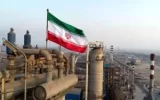The key role of increasing the attractiveness of oil contracts in the development of oil fields

According to Energy Press, oil; this black gold, which has always carried the heavy burden of hopes and challenges of the Iranian economy, is still considered the first link in achieving economic growth in a time when the word “economic sanctions” has fallen like a heavy shadow on the economy. The development of oil fields, amidst limited resources and oppressive sanctions from the West, has been forced to choose a third way.
In today’s world, oil is still one of the most important energy sources and the main axis of the economy of many countries. International developments, from changes in the global oil market to regional competitions, play a decisive role in the oil policies of countries. Iran, as one of the largest holders of oil and gas reserves in the world, is trying to strengthen its position in this field by diversifying oil contracts.
Although economic sanctions and international restrictions have created major challenges for the Iranian oil industry, Iran is seeking to increase the attractiveness of oil contracts by taking advantage of its domestic power. These contracts, designed to attract investment and transfer technology, can play a key role in developing oil fields and increasing production.
Meanwhile, international developments have also influenced Iran’s oil policies. Increasing global demand for energy, competition among regional countries, and changes in oil prices have prompted Iran to invite investors to cooperate with greater flexibility and more attractive contract models. These efforts not only help develop the oil industry, but can also strengthen the country’s economy and reduce dependence on foreign resources.
Looking at oil contracts around the world, it is clear that there are three types of contracts for oil development: concession, partnership, and service. Models that entrust operating companies with the task of extracting hydrocarbon resources from the ground. Contract models that Iran’s neighboring countries have also used to develop joint fields to rapidly extract resources by relying on the capital and technology of large oil companies.
But Iran has a different story. Before the victory of the Islamic Revolution in 1979, Iran signed 25 oil contracts with international companies, including four concession contracts, 11 partnership contracts, and 9 service contracts, but after the revolution, everything changed.
Mutual sales: an old friend or a temporary solution?
Mutual sales; this old contract, whose name has been tied to the Iranian oil industry for years, came to untie the knot of development work amid sanctions and a shortage of resources. Its characteristics? Risky, expensive, but effective. In this contract, the investor takes a risk, puts his money in the middle, and only receives his reward if he succeeds. If he fails? He gets nothing, and this may be the only advantage of this contract that, according to some, benefits the employer.
But where is the problem? When the contractor hands over the project, he has no responsibility for the remaining facilities, which means reduced production from developed fields in the following years, a new wound on the body of the oil industry. Money management? It is in the hands of the contractor, not the employer, and these weak supervisions are another weakness that can be attributed to this contract.
In the years after the revolution, different generations of mutual sales came one after the other; each generation tried to solve the problems of the previous generation. The first generation? Simple and primitive. The second generation? Technology transfer and use of domestic capacity. The third generation? More freedom for contractors, but was this enough? Can we say that mutual sales are still a worthy ally of the oil industry? Or is it time to look for new contracts that can meet the needs of these difficult days?
Creating oil and gas civilizations in the shadow of counter-purchase contracts
Of course, it should be emphasized that despite all the limitations that existed in counter-purchase contracts in the Iranian oil industry, the development of South Pars as the largest gas field in the world, as well as the initial development of the oil fields west of Karun, was carried out based on this contractual model. Developments that now make a great contribution to ensuring Iran’s energy security. In fact, the creation of large industrial civilizations in the heart of the Persian Gulf and west of the Karun River would not have been possible for Iran without defining a counter-purchase contractual model, so a brilliant part of the Iranian oil industry owes counter-purchase as an innovative solution.
Tags:oil
- Comments sent by you will be published after approval by site administrators.
- Comments that contain slander will not be published.
- Comments that are not in Persian or not related to the news will not be published.

Comments
Total comments : 0 Awaiting review : 0 Date: 0